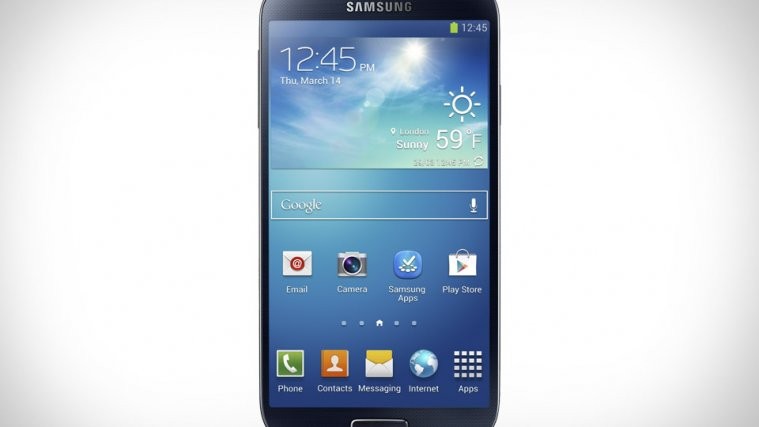All the flagship Galaxy S smartphones released in the past three years have always had one thing in common – they’ve managed to beat every other competing flagship phone in almost every benchmark, thanks to Samsung’s efforts in developing better and more powerful chipsets each year.
This hasn’t changed with the Galaxy S4, Samsung’s latest and greatest flagship. The Galaxy S4 comes in two variants – one sports an 1.6GHz 8-core Exynos processor, while the other is powered by a Qualcomm Snapdragon 600 chipset clocked at 1.9GHz. And while previously only the Exynos variants have been able to come out on top in benchmarks, the Galaxy S4 has managed to beat the competition with both the Exynos and Snapdragon variants, in most of the popular benchmark apps and tools it has been subjected to.
If you’ve wondering about the benchmark scores of the Galaxy S4 and how it fares against the competition, we’ve got them all here in one place. So, let’s take a look.
Geekbench
Geekbench is a cross-platform benchmark that allows you to measure the processor’s power, and though each OS has a lot of factors attributing to its performance attributes, it gives a pretty good idea of where a device stands out. In Geekbench, the Snapdragon 600 variant was able to comfortably beat every other device except the HTC One, with the latter losing due to a lower clock speed. Apple’s iPhone 5, BlackBerry’s Z10, or even Google’s Nexus 4, they all failed to match the performance offered by the Galaxy S4.
For now, the Exynos variant of the S4 hasn’t been tested on Geekbench, so we’ll have to wait to see how that one fares in the test, though we can expect it to leave even the Snapdragon variant behind. Here go the Geekbench scores of the Galaxy S4, HTC One, and other competing devices.
| Galaxy S4 | 3163 |
| HTC One | 2687 |
| LG Nexus 4 | 2040 |
| Galaxy S3 Exynos | 1717 |
| Apple iPhone 5 | 1569 |
| BlackBerry Z10 | 1480 |
Quadrant
Quadrant is an Android-only benchmark app that measures performance across every category – processor performance, graphics, input/output speed, and mathematical calculations. Here, the Exynos Galaxy S4 managed a score of 12726, which is the highest and a few more points than the HTC One, which scored 11746 . The next closest one was the Sony Xperia Z, which maxed out at 8075 points.
So how fares the Galaxy S4 against others in Quadrant? Here are the scores.
| Galaxy S4 | 12726 |
| HTC One | 11746 |
| Sony Xperia Z | 8075 |
| HTC One X+ | 7632 |
| LG Optimus G | 7439 |
| HTC One X | 5952 |
| Galaxy Note 2 | 5916 |
| LG Nexus 4 | 4567 |
AnTuTu Benchmark
AnTuTu is another benchmark tool similar to Quadrant – it tests the device in many areas, including processor, graphics, RAM, and data transfer performance. Well, AnTuTu is where the Exynos variant of the Galaxy S4 really shined, scoring 27,417 points, almost a whopping 10% higher score than its nearest competitor, which was none other than the Snapdragon 600 variant of the S4 itself. AnTuTu is currently the most popular benchmark app available for Android, and such a high score should do nothing but impress everyone, no matter how high their expectations.
Here go the AnTuTu scores for the Galaxy S4 and the competition.
| Galaxy S4 Exynos | 27417 |
| Galaxy S4 Snapdragon | 25900 |
| HTC One | 22678 |
| Sony Xperia Z | 20794 |
| LG Nexus 4 | 19318 |
| Galaxy S3 | 15547 |
| HTC Butterfly | 12631 |
[hr /]
So there you have it. The Galaxy S4 is the fastest smartphone on the planet at least in synthetic benchmarks, and it trumps other devices by quite a fair margin in some cases. This is further impressive when you consider that the Galaxy S4 tested isn’t running the final version of the software, so we can expect the scores to improve when retail units hit the shelves in late April.
Another thing to keep in mind is that real life performance is what really matters, so these benchmark scores are merely what the device is capable of when subjected to particular tests. Also, if you were disappointed that your country isn’t getting the 8-core Exynos variant of the Galaxy S4, don’t be, as the Snapdragon version is not too far behind and should provide performance that’s not discernible in real life usage.
Be sure to bookmark this page and check back later as we’ll be updating it once we come across more benchmarks and once the Galaxy S4 launches in the market. And don’t forget to leave a comment below about your thoughts on the Galaxy S4’s benchmark performance.
Samsung Galaxy S4 Specifications
- 5-inch 1080p Super AMOLED display, 1920 x 1080 pixels
- 1.6GHz 8-core Exynos/1.9GHz quad-core Snapdragon 600 processor
- 2GB RAM
- 13-megapixel rear camera, HDR, 1080p video recording
- 1.9-megapixel front camera
- 16/32/64GB storage, microSD slot
- Wi-Fi, HSPA+, LTE, NFC, GPS, IR Blaster
- 2,600 mAh battery, wireless charging via optional back cover
- Android 4.2.2 Jelly Bean, TouchWiz UI
- 136.6 x 69.8 x 7.9mm







